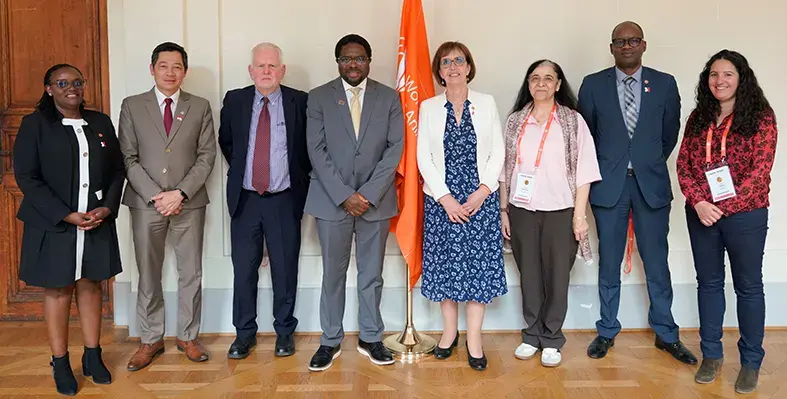The World Organisation for Animal Health (WOAH) has designated the International Livestock Research Institute (ILRI) as its first Collaborating Centre for One Health, marking a significant recognition of ILRI’s leadership in addressing complex issues at the convergence of animal, human, and environmental health
ILRI, a CGIAR centre co-hosted by Kenya and Ethiopia, maintains headquarters in both Addis Ababa and Nairobi and operates 14 offices throughout Asia and Africa. The institute has a proven track record of applying the One Health approach to tackle pressing challenges in low- and middle-income countries, where the interconnection between animal, human, and environmental health is most pronounced.
Announcing the designation during WOAH’s 92nd General Session, ILRI director general Appolinaire Djikeng stated, “We are honored by WOAH’s designation of ILRI as a Collaborating Centre for One Health. This recognition reinforces our commitment to leveraging livestock research for healthy people, healthy animals and healthy ecosystems. Through our networks across Africa and Asia, ILRI will continue to work with partners to provide the One Health solutions that improve animal health management, drive innovations, mitigate emerging global threats and build sustainable resilience in food systems globally. In addition, ILRI seeks to strengthen the evidence base for addressing climate-related health challenges through the application of a One Health approach.”
With its new status, ILRI will drive research, capacity building, and policy engagement to support WOAH’s global One Health strategy. The centre will prioritise areas such as disease prevention, especially zoonotic and emerging diseases, using surveillance and early warning mechanisms. It will also focus on improving biosecurity and implementing value-chain interventions to lower disease risks, while contributing to epidemiological modelling, socio-economic analysis, and policy development. Climate-resilient strategies will also form a core component of its research agenda to address animal health vulnerabilities stemming from environmental changes.
WOAH director general Emmanuelle Soubeyran, stated, “ILRI’s interdisciplinary approach aligns with WOAH’s vision for One Health. Together, we can transform research into actionable policies and provide more evidence for WOAH international standards to safeguard animal health, trade and global food security. We look forward to working closely with ILRI to advance the One Health agenda and build stronger, more resilient animal health systems globally.”
This partnership represents a significant advancement in linking scientific research with policy to confront increasingly interconnected health challenges around the world.





